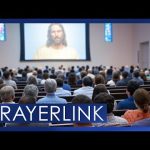Glenn Beck recently took matters into his own hands to test a lingering question about JFK’s assassination: Could Lee Harvey Oswald have realistically fired the shots that killed President Kennedy in the time frame the Warren Commission claims? Using an exact replica of Oswald’s rifle, Beck headed to a shooting range to recreate the infamous moment. His experiment revealed two critical insights that challenge the official narrative.
First, Beck found the rifle’s awkward design and unusual scope made it incredibly difficult to aim quickly and accurately. Even for an experienced shooter, lining up precise shots under pressure proved far harder than expected. Second, the timeline allowed by the Warren Commission—roughly 5-6 seconds between shots—left virtually no room for error. Missing the target by even a fraction of a second would’ve disrupted the entire sequence, yet Oswald was labeled a “poor shot” in declassified CIA files.
Beck’s full recreation, set to release March 26, dives deeper into these inconsistencies. It raises serious questions about whether Oswald acted alone—or if deeper forces were at play. The findings align with newly released JFK files suggesting government agencies had prior knowledge of Oswald’s threats but failed to act.
This isn’t just about history. It’s about holding power to account. For decades, Americans have been told to trust official reports, but Beck’s work shows why skepticism is essential. The same agencies accused of “media manipulation” in the 1960s still operate today, reminding us that transparency is the best defense against tyranny. The truth about JFK’s death matters because it exposes patterns of secrecy that continue to endanger our republic.




